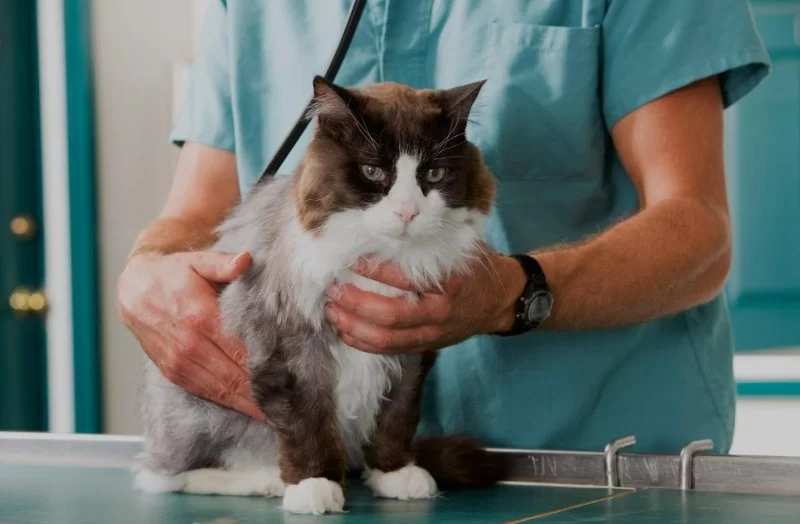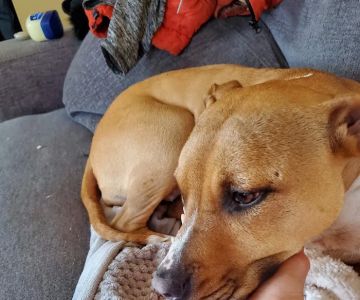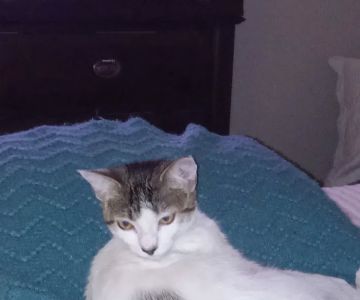- feline-gi-disorders
- pet-gi-health
- cat-digestive-issues
- treating-feline-gi-problems
- pet-health
- recognizing-feline-gi-disorders
Recognizing Feline GI Disorders: Common Symptoms to Watch For
Feline gastrointestinal (GI) disorders can affect a cat's digestive system and overall health. As pet owners, it's crucial to recognize the early signs of GI issues to prevent further complications. Cats are skilled at hiding discomfort, so knowing what symptoms to look for is vital. In this article, we'll explore common symptoms of feline GI disorders and provide helpful insights on how to treat them to keep your furry friend healthy and comfortable.
Common Symptoms of Feline GI Disorders
When your cat experiences digestive problems, you may notice several symptoms indicating that something is wrong. Common signs of feline GI disorders include:
1. Vomiting
Frequent vomiting is one of the most common signs of a GI disorder in cats. If your cat vomits regularly, it could be a sign of food allergies, gastrointestinal infections, or even more serious conditions like pancreatitis. It’s important to observe the frequency and timing of the vomiting to help your veterinarian identify the issue.
2. Diarrhea
Diarrhea is another common symptom of feline GI disorders. If your cat experiences loose stools, frequent bowel movements, or bloody stools, it could indicate a variety of conditions, including infections, inflammatory bowel disease (IBD), or parasites. Diarrhea can lead to dehydration, so it’s important to address this issue quickly.
3. Loss of Appetite
A decrease in appetite or refusal to eat can be a sign of a GI issue. Cats with digestive problems may experience nausea, discomfort, or pain when eating. If your cat has stopped eating or is eating less than usual, it's important to consult your veterinarian for an evaluation.
4. Lethargy
When cats experience gastrointestinal distress, they often become lethargic and less active. If your normally active cat is suddenly more tired or withdrawn, it may be due to digestive discomfort or an underlying GI disorder.
5. Weight Loss
Weight loss, especially if it's noticeable over a short period of time, can be a sign of an ongoing GI problem. Conditions like IBD or intestinal cancer can cause malabsorption of nutrients, leading to weight loss. It’s important to monitor your cat’s weight and consult a vet if you notice any significant changes.
Treating Feline GI Disorders
Once you recognize the symptoms of feline GI disorders, it’s important to seek treatment as soon as possible. Depending on the cause of the problem, your veterinarian may recommend one or more of the following treatment options:
1. Dietary Changes
For many cats, dietary changes can play a significant role in managing GI disorders. Switching to a specialized diet, such as a hypoallergenic or easily digestible food, can help alleviate symptoms like vomiting and diarrhea. Your veterinarian may recommend a prescription diet or suggest adding fiber to your cat’s meals to improve digestion.
2. Medications
If your cat’s GI disorder is caused by inflammation or infection, your veterinarian may prescribe medications such as antibiotics, anti-inflammatory drugs, or probiotics. Medications can help control symptoms and promote healing in the digestive system.
3. Hydration Support
Dehydration is a common concern for cats with GI issues, especially if they are experiencing diarrhea or vomiting. Ensuring your cat stays hydrated is essential for recovery. Your veterinarian may recommend oral rehydration solutions or even intravenous fluids for more severe cases.
4. Parasite Control
If parasites are causing your cat’s GI problems, your veterinarian will likely prescribe deworming medications to eliminate the parasites. Regular parasite prevention is key to maintaining your cat's digestive health, especially if they spend time outdoors.
5. Surgery
In some cases, surgery may be necessary to treat more severe GI disorders, such as intestinal blockages or tumors. Your veterinarian will determine the best course of action based on the specific diagnosis and severity of the condition.
Maintaining Pet Health and Preventing GI Disorders
While some GI disorders are unavoidable, there are steps you can take to help prevent them and support your cat’s overall digestive health:
1. Regular Vet Checkups
Regular veterinary checkups are essential for monitoring your cat’s health and catching any potential GI problems early. Routine exams can help identify issues before they become more serious, allowing for timely treatment.
2. Proper Diet and Nutrition
Providing a well-balanced diet with high-quality ingredients is key to maintaining your cat’s digestive health. Avoid feeding your cat low-quality foods that may contain fillers or artificial additives. Always consult your vet for guidance on the best diet for your cat’s needs.
3. Stress Management
Stress can trigger or worsen GI problems in cats, so it’s important to provide a calm and comfortable environment. Minimize stressors such as loud noises or frequent changes in the household, and ensure your cat has a quiet space to rest and relax.
4. Proper Hydration
Ensuring your cat has access to fresh, clean water at all times is essential for maintaining proper digestion and preventing dehydration. Some cats prefer running water, so consider using a pet water fountain to encourage hydration.
Get the Best Care for Your Cat at Hidden Brook Veterinary
If your cat is experiencing GI issues or you’re concerned about their digestive health, visit Hidden Brook Veterinary for expert advice and treatment. Our team of professionals is dedicated to providing high-quality care and personalized treatment plans to ensure your cat’s well-being.












